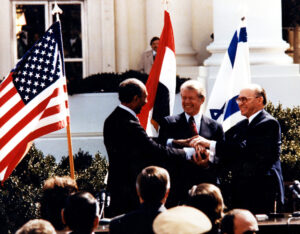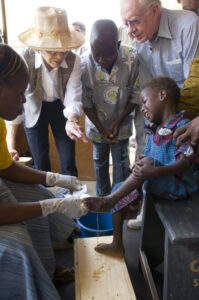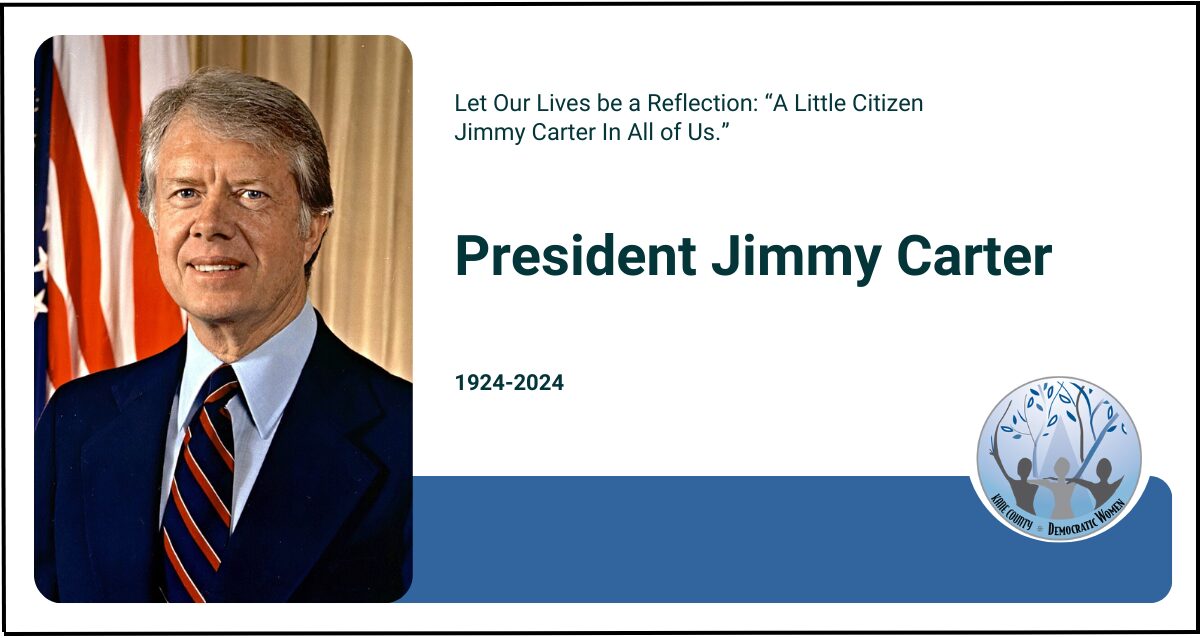Great leadership is taking care of those in your charge. The late president Jimmy Carter, who died recently at the tender age of 100, understood the full weight of this responsibility. Carter was a simple man who rose to global prominence from humble beginnings in Plains, Georgia, a place he would return to after his presidency. By leading a life supported by a Christian faith in God, Jimmy demonstrated a care for all people, setting an example drawn from Scripture. The heart of his faith was defined in the Gospel of Luke 12:8: “To whom much is given, much will be required.” Jimmy’s faith empowered his political ambitions. He knew that with power one could govern wisely and justly.

There were many initiatives President Carter sought to achieve during his time as president, not all came to fruition. The Camp David Accords Peace Treaty in the Middle East was long and drawn out with two adversaries, Egyptian President Anwar Sadat and Israeli Prime Minister Menachem Begin. When the Egyptian-Israeli peace treaty was finally signed on March 26, 1979, some people believed the Accords Peace Treaty was not comprehensive enough, since there was no date for the already-agreed upon issue, that of implementing full autonomy in the West Bank and Gaza.
Major achievements were made at the State Department during President Carter’s term, including the creation of the Bureau of Democracy, Human Rights, and Labor, a civil rights legacy that demonstrated his unwavering dedication to social justice and the well-being of the common man and woman. In addition, he created the Departments of Energy and Education. Carter stated, “The people deserve a government as good as the American people.”
Controversy surrounded his presidency when he negotiated the Torrijos-Carter Treaties with Panama. Both treaties were signed in 1977 and ratified in 1978. The United States officially handed over control of the canal to the Panamanian Government in 1999.
In “The Outlier: The Unfinished Presidency of Jimmy Carter,” Kai Bird describes Carter’s record on equality for women as spectacular. Carter supported the ERA, lobbying for its ratification. He also appointed many women to important positions in his administration. President Carter appointed 262 federal judges, including 56 appeals court judges. Among them was Ruth Bader Ginsberg who became a Supreme Court justice during President Bill Clinton’s term.
In spite of Carter’s many accomplishments, sentiment turned against him when he ran for a second term. The country faced job losses, high inflation and rising costs of gasoline. And the hostage crisis in Iran was splashed across the newspaper headlines every morning during the last year of his presidency. Later, it was revealed that the Ronald Reagan Campaign made a deal with Iran to hold the hostages until after he won the election.
History has chronicled tyrannical governments. America is again living in challenging times, in which there is great unrest, division and divided government.
Trump’s vision of America squanders the upper mobility sought by minorities and low income citizens to make our union more inclusive and equitable. His actions and executive orders are cruel. Many are unlawful and being challenged in the courts.
In Illinois, 3.5 million people are on Medicaid. This includes disabled persons, special needs citizens, and many veterans, and senior citizens. Across the nation, 37 million kids and— two-thirds of seniors in nursing homes depend on the programs that federal tax dollars support. Forty percent of the revenue community health centers need to run their operations comes from federal tax dollars. At Trump’s direction, the Republican Party and appointed officials seek to gut Medicaid and Medicare and disrupt Social Security, jeopardizing the safety net of seniors. The Republican plan is to privatize Social Security, exposing it to the risk and ups and downs of the stock market.
During the last few days, educators condemned Trump’s latest dismantling onslaught, the elimination of the Department of Education. Illinois Attorney Kwame Raoul described what these actions will mean to Illinois students: There will be no assistance with the processing and release of their financial data and help with informed decisions. Attorney General Raoul has joined a lawsuit with other state attorneys general seeking to stop the Trump administration. A warning also came from Governor Pritzker in his remarks to reporters after attending the Illinois Education Association’s convention on March 13th. Governor Pritzker stated that programs for children will be diminished or eliminated because of lack of funds. This includes programs for disabled children and programs for students who do not have the money to go to college. Pritzker believes that everyone should be able to get an education, but Illinois cannot replace the potential loss of $3.5 billion in federal education funding for Illinois.

Great leadership is taking care of those in your charge. After the 1980 election defeat to Ronald Reagan, former President Carter said, “We obeyed the law, we told the truth, and we kept the peace.”
Those who were adults when Jimmy Carter became president also remember his many accomplishments during his post presidency.
In 1999, 18 years after he left office, he received the Presidential Medal of Freedom. Three years later, he received the Nobel Peace Prize. At the Carter Center, he raised millions of dollars for health initiatives like the eradication of dracunculiasis – also known as the Guinea Worm disease, which is spread from contaminated drinking water and affects people across Central Africa and Pakistan.
Carter Center funds from private individuals and corporations were used for human rights projects, preventative healthcare, and election monitoring and conflict resolution in the Middle East, Latin America, and Africa. Every year into his 90s Carter and wife Roslyn joined others to spend one week working with Habitat for Humanity, building homes for the less fortunate. Today, to live a life a “little more” like Jimmy Carter should be the goal of every woman and man. Let America be a reflection of goodwill and just and lawful government. We need a government that follows the laws, not the will of one man.
Bird, Kai (2021). The Outlier: The unfinished presidency of Jimmy Carter. New York: Random House.
Alter, Jonathan (2020). His Very Best: Jimmy Carter, a life. New York: Simon and Schuster.

